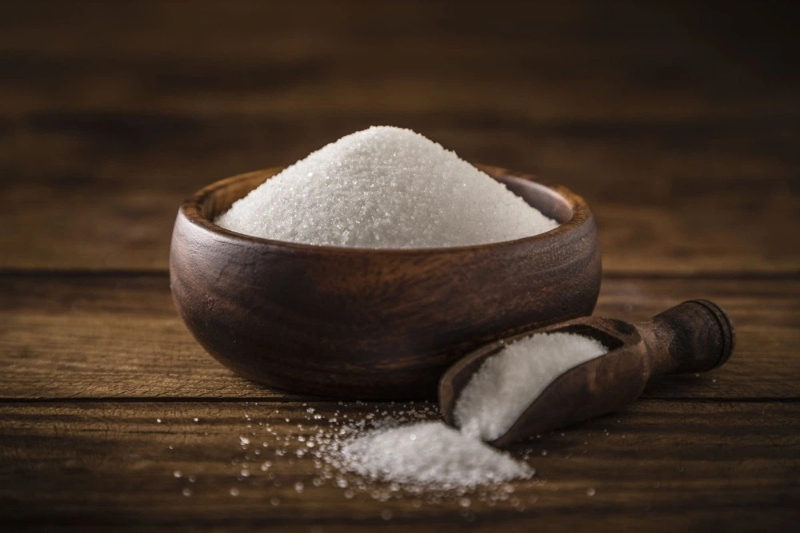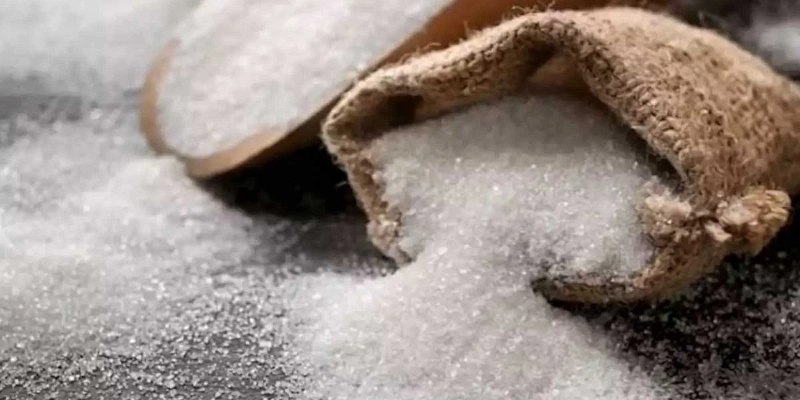







Content Menu
● The Science Behind Sucralose and Cancer Risk
>> DNA Damage and Genotoxicity
>> Impact on Gut Health and Systemic Inflammation
>> Animal Studies on Tumor Formation
● Sucralose and Cancer Immunotherapy
>> How Sucralose Impacts Immunotherapy Efficacy
>> Potential Mitigation via Arginine Supplementation
● Industry and Regulatory Perspectives
● FAQ About Sucralose and Cancer
>> 1. Does sucralose directly cause cancer in humans?
>> 2. Is it safe to consume sucralose daily?
>> 3. How does sucralose affect cancer immunotherapy?
>> 4. Can the negative effects of sucralose on immunotherapy be counteracted?
>> 5. Are natural sweeteners safer than sucralose?
Sucralose, a widely used artificial sweetener found in a multitude of food and beverage products, has attracted significant attention regarding its potential health effects—especially its possible link to cancer. As a zero-calorie alternative to sugar, it is embraced in diet and sugar-reduced products. However, emerging scientific research has raised concerns about sucralose's impact on DNA integrity, gut health, inflammation, and even cancer treatment efficacy. This article delves into the latest findings, exploring whether sucralose causes cancer and what this means for consumers and industries alike.

Sucralose is a synthetic sweetener approximately 600 times sweeter than sucrose (table sugar). It is manufactured by chemically modifying sugar molecules to render them indigestible and calorie-free. Popularized under brand names like Splenda, sucralose is used across many food and beverage categories—diet sodas, baked goods, chewing gums, frozen desserts, and more—primarily to provide sweetness without calories.
Because it passes through the human digestive system mostly unchanged, sucralose was initially considered safe and metabolically inert. This led to its approval by regulatory agencies such as the U.S. Food and Drug Administration (FDA) in 1999 for widespread use.
Recent research has called into question the inertness of sucralose. Studies conducted on human cells in vitro demonstrate that sucralose and its metabolites—such as sucralose-6-acetate, a byproduct formed during production—can cause DNA damage. This genotoxicity is critical because DNA damage in cells can initiate carcinogenesis by leading to mutations, genomic instability, and cellular dysfunction.
While these findings largely come from cell culture and laboratory experiments, they raise alarms about the potential long-term effects of sucralose consumption on genetic material integrity.
Sucralose consumption has been linked to altered gut microbiota composition and compromised gut barrier functions. Studies indicate it may cause "leaky gut" syndrome, where the intestinal lining becomes permeable, allowing toxins and bacteria to enter the bloodstream. This can spark chronic systemic inflammation, a well-established risk factor in the development of various cancers.
In addition, changes in gut bacteria introduced by sucralose may increase oxidative stress—cells' harmful exposure to reactive oxygen species—which can contribute both to inflammation and DNA damage.
Animal experiments, particularly in mice, have shown that high sucralose intake may increase the incidence of malignant tumors, including hematopoietic (blood-forming tissues) neoplasias. These findings support the hypothesis that sucralose could have carcinogenic effects under certain conditions of exposure.
However, extrapolating animal data to humans requires care, given differences in metabolism, dosage, and life span.
More recently, cutting-edge research has uncovered that sucralose may adversely affect cancer immunotherapy outcomes. Immunotherapy is a breakthrough cancer treatment that empowers the body's immune system—especially T cells—to detect and eliminate cancer cells.
A landmark 2025 study led by the University of Pittsburgh and UPMC Hillman Cancer Center revealed that sucralose consumption reduced the effectiveness of immunotherapy in patients with melanoma and non-small cell lung cancer. The research included 132 patients undergoing immune checkpoint inhibitor treatments.
Mechanistically, sucralose was found to alter the gut microbiome, increasing the abundance of certain gram-positive bacteria that degrade an amino acid called arginine. Arginine is critical for optimal T cell function, supporting their capacity to attack cancer cells.
Reduction in arginine levels due to sucralose-associated microbiome changes compromised T cell activity, leading to poorer tumor control and reduced survival rates in both human patients and mouse models.
Importantly, researchers demonstrated that supplementing mice with arginine or its precursor citrulline restored T cell function and improved immunotherapy responses despite sucralose exposure. This promising finding suggests that dietary or clinical arginine supplementation could counteract the negative effects of sucralose on cancer treatment outcomes.
While this research is groundbreaking, clinical trials will be necessary to validate arginine's protective effects in patients.

Despite emerging concerns, regulatory agencies such as the FDA and the European Food Safety Authority (EFSA) maintain that sucralose is safe when consumed within recommended daily intake levels. These safety assessments rely heavily on older toxicology studies and do not yet fully incorporate the latest findings on DNA damage and immune modulation.
Manufacturers stress that commercial production processes remove potentially harmful byproducts like sucralose-6-acetate, reducing genotoxic risks in finished products.
Nevertheless, the World Health Organization (WHO) and scientific communities call for further long-term human studies and continuous monitoring of sucralose's health impacts.
For consumers and manufacturers seeking safer sweetening options, natural sweeteners like stevia, monk fruit extract, and erythritol have gained favor. These alternatives offer sweetness with fewer concerning health effects and may provide additional benefits such as antioxidant or anti-inflammatory properties.
When reformulating products, companies focused on health may consider these substitutes to minimize potential cancer risks and meet consumer demand for clean-label ingredients.
The relationship between sucralose and cancer risk is complex and evolving. Emerging evidence points to genotoxic effects, gut microbiome disruption, systemic inflammation, and interference with cancer immunotherapy as potential harmful impacts of sucralose. Although definitive proof of sucralose causing cancer in humans is lacking, these findings justify a cautious approach to its use.
Regulatory bodies still consider sucralose safe within set limits, but ongoing research is urging reassessment, particularly concerning long-term consumption and vulnerable groups such as cancer patients.
Consumers and manufacturers should stay informed, considering natural sweetener alternatives and moderation in sucralose intake. Clinicians may need to consider dietary sucralose's impact on cancer treatment efficacy, with strategies like arginine supplementation on the horizon as potential mitigators.

Current human data do not conclusively establish that sucralose directly causes cancer. Most concerning findings come from lab and animal studies showing DNA damage and inflammation, requiring further human research.
Regulatory agencies generally deem sucralose safe within established daily intake levels. However, emerging research suggests moderation is prudent, especially for people with certain health conditions.
Sucralose disrupts gut microbiota, reducing arginine levels needed for T cell function. This diminishes the immune system's ability to fight cancer, lowering immunotherapy effectiveness.
Animal studies show supplementing arginine or citrulline can restore immunotherapy efficacy despite sucralose intake. Clinical trials are underway to test this in humans.
Natural sweeteners like stevia and monk fruit are generally considered safer with fewer adverse effects, but individual responses vary and more research is needed.
[1](https://www.medicalnewstoday.com/articles/popular-artificial-sweetener-sucralose-may-negatively-affect-cancer-immunotherapy)
[2](https://www.reuters.com/business/healthcare-pharmaceuticals/health-rounds-artificial-sweetener-consumption-linked-less-effective-cancer-2025-08-01/)
[3](https://www.cbsnews.com/pittsburgh/news/sucralose-cancer-treatments-university-of-pittsburgh-upmc-study/)
[4](https://www.medschool.pitt.edu/news/sucralose-could-make-cancer-treatment-less-effective)
[5](https://www.sciencenews.org/article/sucralose-immunotherapy-less-effective)
[6](https://aacrjournals.org/cancerdiscovery/article/doi/10.1158/2159-8290.CD-25-0247/763776/Sucralose-consumption-ablates-cancer-immunotherapy)
[7](https://www.cancertherapyadvisor.com/news/sucralose-intake-may-reduce-efficacy-of-icis/)
[8](https://pmc.ncbi.nlm.nih.gov/articles/PMC11673533/)
[9](https://www.oncology-central.com/artificial-sweetener-sucralose-shown-to-dampen-immunotherapy-effectiveness/)
Top Nutritional Supplement Manufacturers And Suppliers in Indonesia
Top Nutritional Supplement Manufacturers And Suppliers in India
Top Nutritional Supplement Manufacturers And Suppliers in Germany
Top Nutritional Supplement Manufacturers And Suppliers in France
Top Nutritional Supplement Manufacturers And Suppliers in Canada
